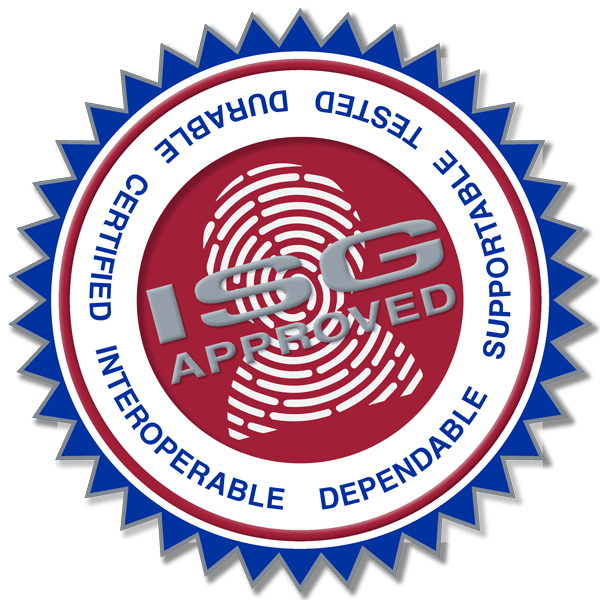Re-posted with permission from Campus Safety Magazine and edited.
This is the second part of last week’s post from the Commercial Security End-User Forum. End User One is the director of security for a large school district. End User Two is the director of security at a healthcare provider. End User Three is the director of support services at another healthcare provider, and End User Four is the president of a security services provider.
End Users Strenuously Vet Potential Integrators
These types of end users have come to expect certain capabilities from their integration partners. So how do many of them vet their go-to integrators to make sure they can get the job done with the level of expertise they require?
“First off, I want to know which product lines the integrator represents, because repping everyone isn’t necessarily good,” End User Four asserts. “It means they’re trying to keep up with a whole lot of technologies. The second thing I want to know is that they’re a good listener. I need them to listen to me so they understand what my pain is. I want them to be collaborative, a trusted advisor and not out to just sell me what they want to sell me. And, I want them to have the proper industry certifications and, beyond that, even possibly a dedicated engineering department.”
It’s a lot to ask of a security integrator, but then it takes a certain type of firm to step up to the challenge of providing security and life-safety for a mission-critical environment such as a hospital.
“There are lots of smaller companies that can hang a camera and do some system integration, but can they speak the language and wield products to their maximum capability?” End User Four asks. “And availability. Availability is so important. The last thing I want to do is call an integrator and get a call back a week later. In addition, as with any other vendor, I want to know who else you work for and be able to check references.”
End User Two says that, “Oftentimes, integrators will tell me they’re interested in a partnership with my company but, for us, that means they’re able to align what they bring to the table with our mission, our vision as a whole and our risk management strategy. The certs [certifications] are important, as well. We’re highly standardized in terms of the security technologies we deploy and want integrators to have the highest level of certs in the product lines we use.”
He adds that integrators that demonstrate a level of progressiveness with today’s cutting-edge and efficient technologies also enhances their value proposition.
“Keeping up-to-date with their certifications is a must, but we also like to see new adoption of technologies and different project management tools, e-portal tools for account management, different proposal generation tools and system design tools,” End User Two says. “It just brings a better experience to the customer, and having them align with our vision gives us the best overall experience possible.”
With workplace violence protection concerns weighing heavy on the minds of many hospital security directors, End User Three explains, integrators dealing in healthcare should certainly be adept in areas such as video and access control, but any regulations-savvy or expertise is also appreciated.
“We have to do assessments and evaluate the risk factors for each area of the hospital to determine how we need to beef up our security in any given area,” he says. “This may be adding cameras, better lighting, physical barriers, alarms… there are a multitude of different options to help mitigate the risk. If we had an integrator who knew that law, they could help with that assessment and recommend solutions to be in compliance and create a safer environment.”
Among the integrator must-haves for End User Three is having the certifications for the systems the hospital has in place, plus the scope and skills to meet the hospital’s growing needs.
“We had a rapid expansion from upgrading our VMS and access control system to adding cameras, so we’re doing a lot of projects in a short timeframe,” he says. “It stretches and challenges the integrator, and I need to know that they’d be able to handle that much.”
Working in the education sector, End User One notes a few requirements of his own.
“It’s something people overlook, but we have to operate off the public bid rules, so we require that someone be a responsive bidder,” he says. “We also require the integrator to have five years’ experience installing cameras in a school district environment and to carry the needed manufacturer certifications. We also do reference checks.”
It’s Not Just About Technology
Besides having technical skills, End User Two looks for integrator partners who he trusts and can educate him on how he can sell the security solutions to his internal stakeholders, particularly if the internal client doesn’t have a technical background. Additionally, he looks for a professional, easy to understand yet comprehensive proposal along with a bill of materials.
End User One recommends not trying to change a system entirely. With 28 sites to secure within his school district, having someone come in and try to change the systems and put in what they’ve already designed wouldn’t work. He also doesn’t want a sales pitch.
“We don’t have time for that and are already working with specific manufacturers,” End User One says. “I’d say get all the certs you can because we do pay attention to that and look for a high level of certifications.”
End User Three likes integrators who focus on some bread-and-butter products that they know inside and out for these markets.
“I feel more confident with an integrator who knows the product they’re selling and how to service it, as opposed to one who wants to sell me whatever they are and isn’t in tune with what I really need,” he says. “Rather than saying they sell everything, they’re better off selling a select few lines and really knowing them.”
He adds that word of mouth and reputation are key, particularly in healthcare.
Meanwhile, End User Four wants integrators to look at his system design in the way the name “integrator” suggests — how will everything work cohesively?
“We need to look at physical security systems holistically and what the entire system is capable of doing,” he says. “Even in our assessments, we don’t do feature-based design — we do quantitative assessment. The issue is not simply that I have 12 cameras that make my system efficient; I have firmware, policies and procedures and am concerned with how it reports and if I can trust those cameras. That’s a systems-based and not features-based approach.”
The integrator needs to understand upfront the client’s pain points and how a specific product feature is going to help against their greatest threats.
“In risk management, what’s needed is a comprehensive risk threat and vulnerability assessment to define the threat and then recommend mitigations that are valued by the client to stop those threats,” End User Four says.
Whatever Your Needs, Get Expert Help
Talk to your local ISG security and ID expert today about your specific needs. Discuss the different options available to you, and make the choice that best serves your goals. Get the integration, training and support help you want from a certified ISG specialist. Don’t wait until something happens to make it right; get the insight you want and solutions you need in place to prevent future incidents.
Original article written by Erin Harrington for Campus Safety Magazine


